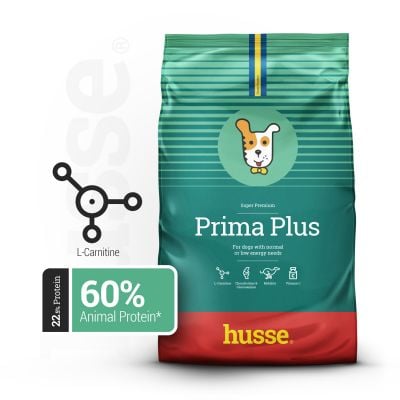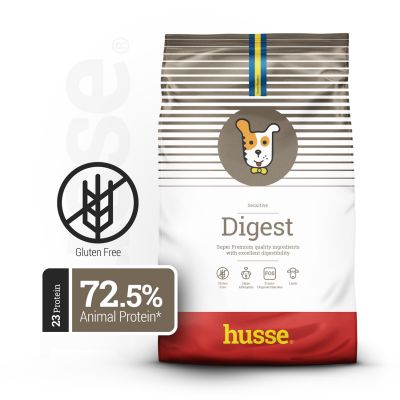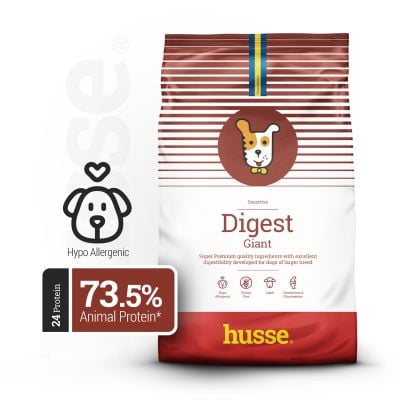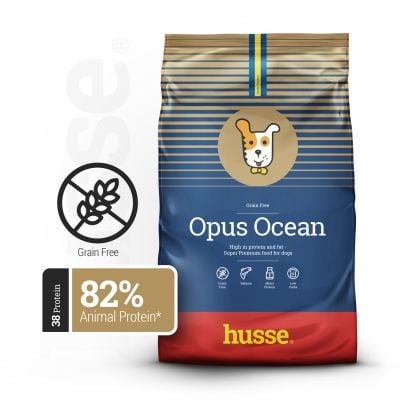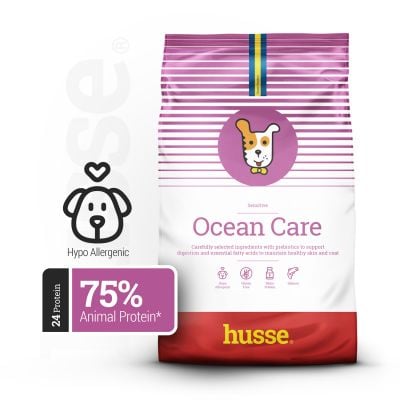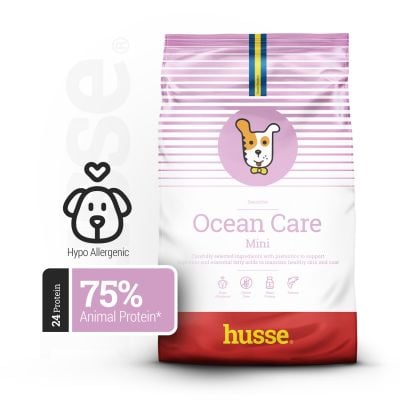Cavalier King Charles Spaniel
Not at all aggressive, very affectionate dog.
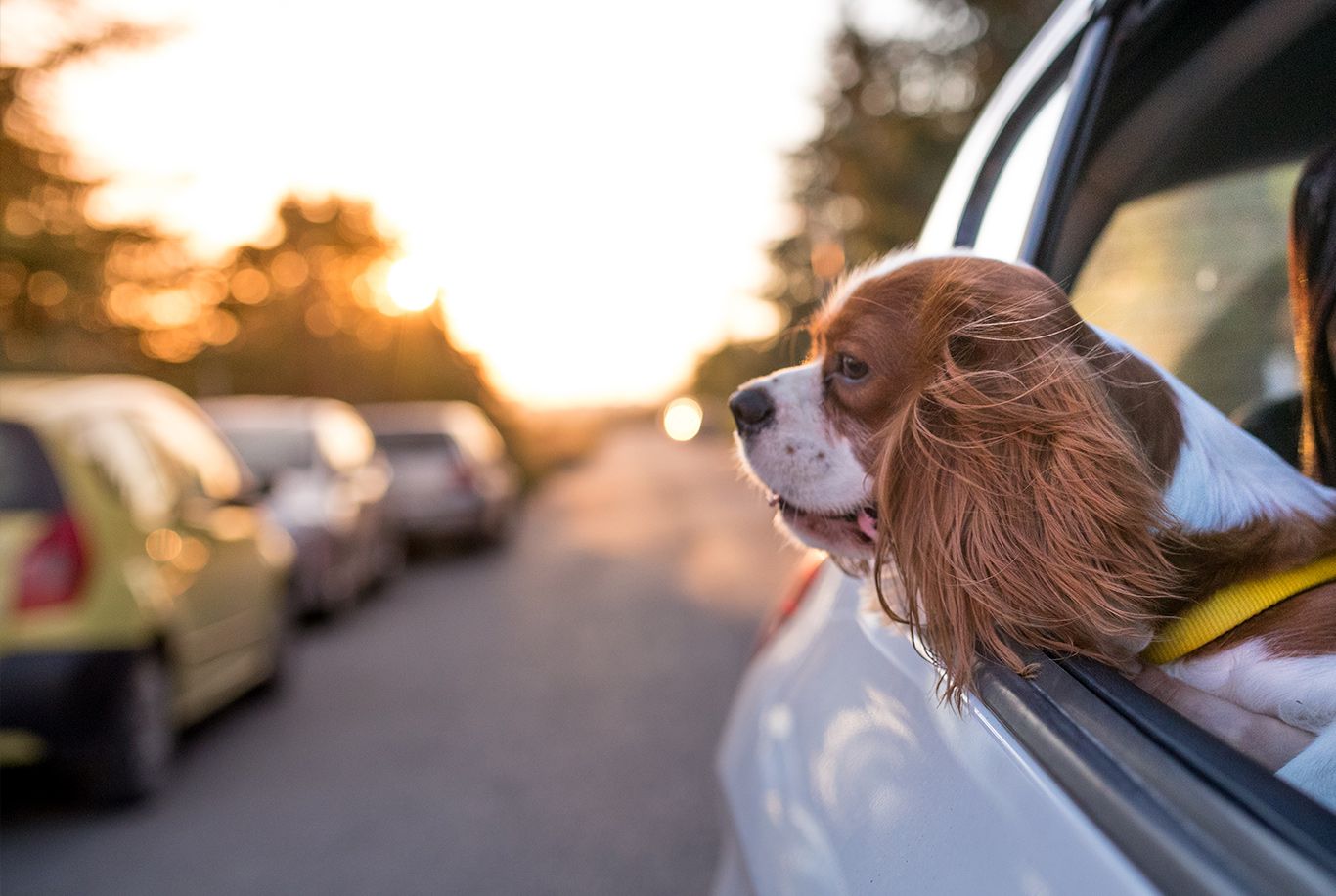
Cavalier King Charles Spaniel is a breed of small spaniels often classified as miniatures. It’s a great companion dog - they’re full of energy and completely free of any signs of aggression.

Country of origin: |
Great Britain |

FCI group: |
Group IX, section 7, English miniature spaniels; |

Temperament: |
Sociable, Affectionate, Brave, Patient, Playful |

Colors: |
Black and Beige, Tricolour, Blenheim |

Weight: |
Male: 5.9 – 8.2 kg, Female: 5.9 – 8.2 kg |

Height: |
Male: 30 – 33 cm, Female: 30 – 33 cm |

Life expectancy: |
From 9 to 14 years |
Cavalier King Charles Spaniel puppies
Cavalier King Charles Spaniel puppies are quick learners, as long as they find their training fun and their teacher is gentle and patient. During the teaching of the basic commands have patience and don’t expect immediate results. A clicker can be a great aid in training with cavalier king Charles spaniel puppies. You can use the sound of the clicker to give your dog a clear signal that he did something good. After the clicker sound always gives your dog a reward, preferably a tasty treat. Cavalier King Charles spaniel puppies have a great appetite, so tasty treats can motivate them to work even harder. Don’t be too lenient with your puppy - you have to be strict, but gentle. The more your puppy enjoys training sessions, the quicker you can expect to see results. Cavalier King Charles Spaniel is a small dog breed, so you need to choose a diet suitable for puppies of small dog breeds - Valp Mini will be just perfect for your pup.
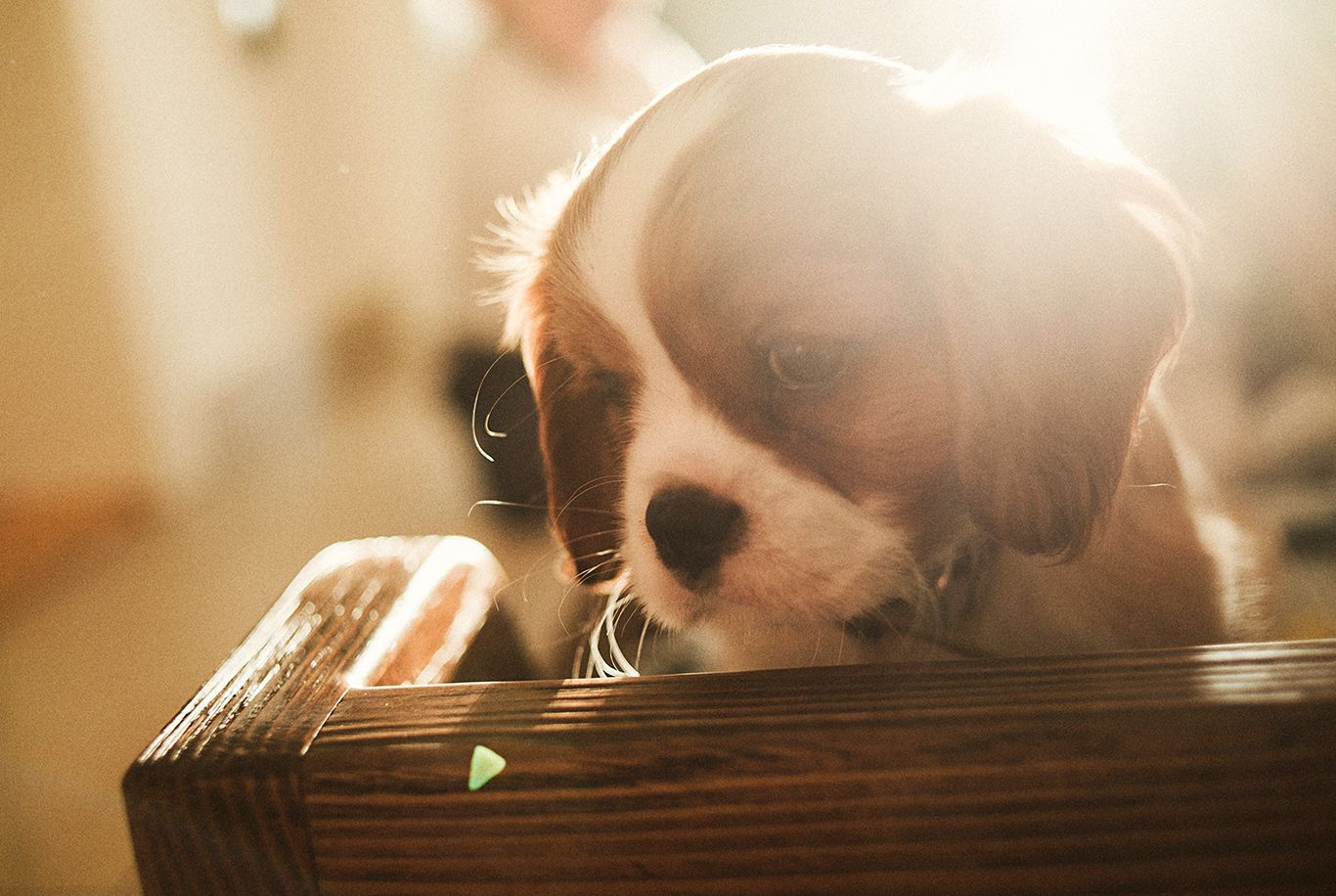
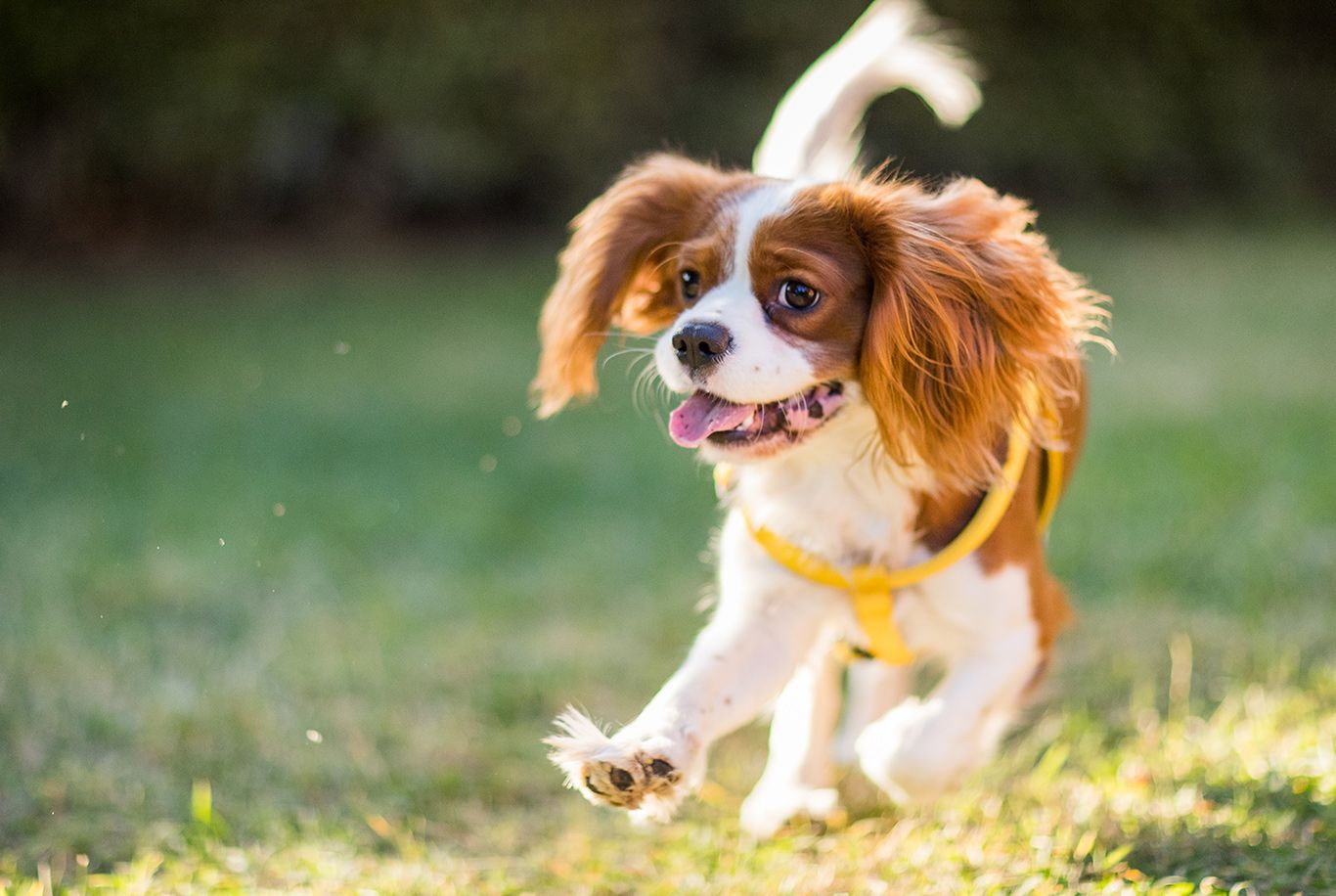
Cavalier King Charles Spaniel nutrition
Cavaliers are not too picky when it comes to food, some would even say they have a great appetite. Dogs of this breed can easily adapt to new living conditions, so a diet change should not be to big of an issue. Both wet and dry food can work great for a dog of this breed. Always remember to pick the right formula for your dog’s age and size. Cavalier King Charles Spaniel is classified as a small dog breed - Optimal Mini is a complete diet for small dogs that will provide your canine friend with all necessary nutrients and any and all vitamins and minerals your dog may require.
Prima Plus | Complete, balanced nutrition for adult dogs to keep them in lean shape test
Sensitive Digest | Hypoallergenic dry food for dogs with digestive sensitivities
Lamb protein, known to trigger less allergies, is the only mammal protein source in the recipe.
Detailed description of Cavalier King Charles Spaniel
Cavalier King Charles Spaniel is a very sociable dog that has never shown any aggressive behaviours. Breed primarily as gundogs, later on, became a favourite companion of royalty across the globe.
Genesis
Although currently, Cavalier King Charles Spaniels are famous for being stunning companions, their origin story was a bit different. Cavalier King Charles Spaniels has been originally bred as hunting dogs of English royalty. A red and white spaniel from Italy or Malta is believed to be a progenitor of the breed. This particular dog has been crossbreed with eastern dog breeds, which resulted in a dog that closely resembles the current appearance of Cavalier King Charles Spaniel. In the 16th century dogs of this breed has become a typical companion for many noblewomen - during travels, they not only kept ladies entertained but help warm their lap and hands. Images resembling Cavalier King Charles Spaniel can be found in the painting of Rubens, Rembrandt or van Dycke.
Appearance
Cavalier King Charles Spaniel is a small dog from the miniature spaniel group. These dogs have a silky smooth coat. Their skull is almost flat, the muzzle is rather short and they have protruding eyes. Ears of the Cavalier are long, set high on the head and covered with long hairs. Cavaliers have short and quite compact bodies and straight backs. Short legs appear as strong, and just as their ears, are covered with long hairs. On the tails, Cavalier King Charles Spaniels have thick hairs and the tail itself never sits above the line created by their straight back.
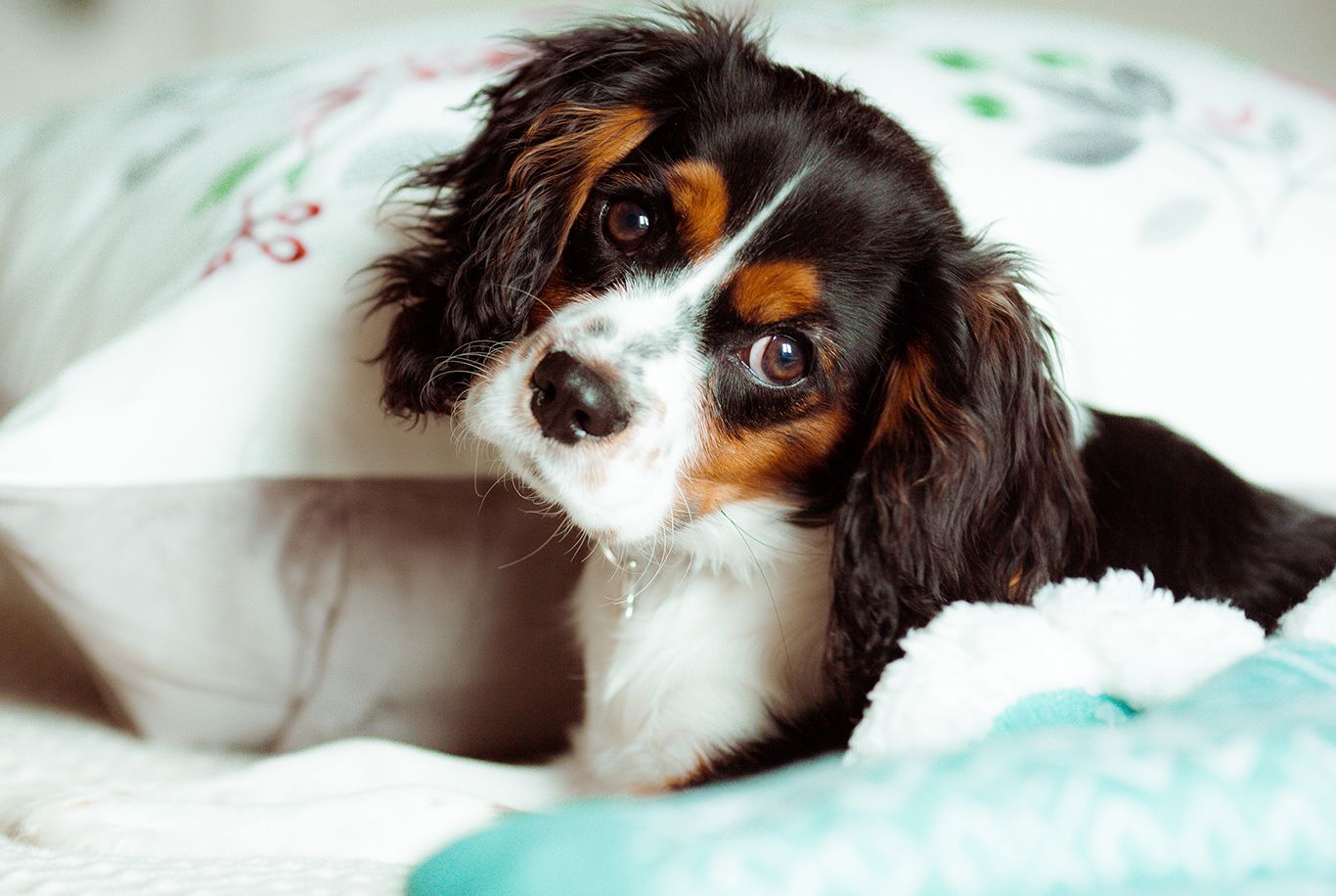
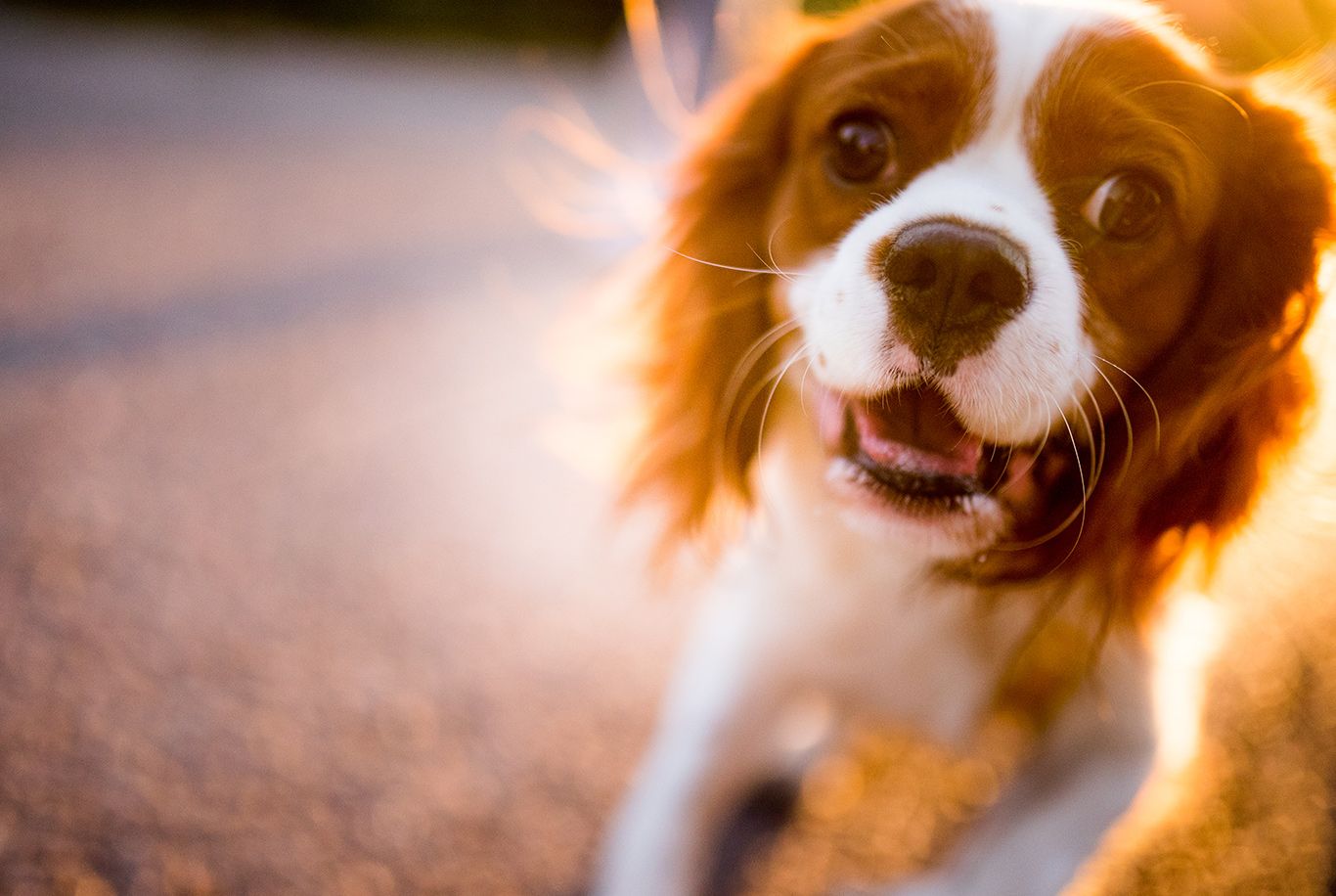
Behaviour
Cavalier King Charles Spaniel is a breed of very friendly and sociable dogs. They make for a great family dog, as they tend to get along well both with people and other animals. No signs of aggression have ever been reported in dogs of this particular breed. They are quite energetic, always ready to play. Cavaliers are rather sensitive dogs that form close and strong bonds with their owners. They do not enjoy being left alone for pronged periods of time. If you're spending a lot of time away from home, offer your dog some company. Cavaliers get along well with other dogs, cats and even rabbits. Dogs of this breed can quickly adapt to new places or situations - if you travel a lot, Cavalier can become a great travel buddy.
Requirements
Cavalier's short muzzle makes dogs of this breed prone to overheating. During summer try to avoid long walks when the sun is at its highest. Reschedule your typical activity and playtime for the evening, when it's a bit colder. Dogs with large protruding eyes are much more prone to any eye injuries, so always keep an eye on your dog when they play with other animals.
Daily care
Although daily care of the Cavalier will not cause any issues, even for beginner dog owners, you have to be consistent. Cavalier's coat should look natural, so it's typically not trimmed or shaved. Cavaliers do not shed too much, so you should be fine with brushing once a week. The longer coat on the ears and paws can get tangled, so pay additional attention to it, when you brush your dog.
 dr Anna Plummervet and blogger
dr Anna Plummervet and blogger
















